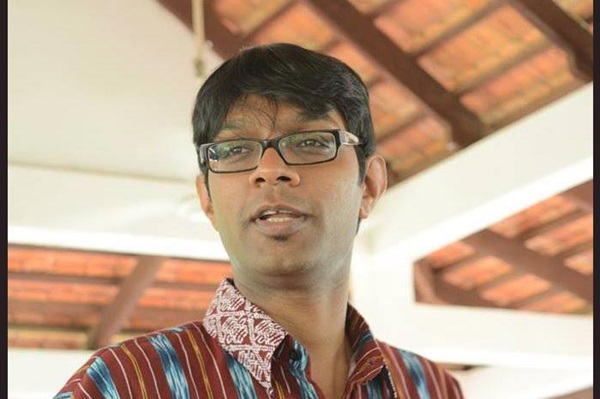As the World Council of Churches (WCC) program executive for Interreligious Dialogue and Cooperation, Rev. Dr Peniel Rajkumar describes himself as a bridge between WCC member churches and Eastern Religions, in particular the Hindu and Buddhist religious traditions.
"I work for conversation and cooperation between faiths, so that together we can work for the greater common good," Rajkumar says. "To do this, I focus on the grassroots-level, on youth, activists and religious leaders so that interreligious dialogue can be shaped by a spirit of honesty. I believe this dialogue should be based on hospitality, and that it should become a sign of hope."
"In a way, I see my role as re-inventing dialogue as a dialogue of life, and for life," Rajkumar adds.
An essential part of Rajkumar's youth-oriented work is YATRA, a training initiative of the WCC aimed to equip young ecumenical leaders to embrace the challenges and opportunities of their multi-religious contexts.
Rajkumar explains, "The word YATRA stands for Youth in Asia Training for Religious Amity, and it is a unique training initiative of the WCC. For two weeks, the young leaders engage in inter-religious learning and cross-cultural living. This creates an environment of discovery and discernment for the participants."
He continues, "Through lectures and exposure visits, we discover the richness of other religious traditions, and through personal reflection and group work we learn to see the influence of religious pluralism on our own Christian faith. This, we hope, will give inspiration to engage in ministries of justice and peace from an interfaith perspective."
"YATRA is WCC's investment in hope," says Rajkumar. "The combination of young people and inter-religious engagement has an immense potential for overcoming violence today. And by equipping young religious leaders to work alongside other religious communities, YATRA can inspire a movement among our churches, to set sail and catch the wind of the Spirit in working for justice, peace and the greater common good."
"Yatra is part of the WCC's vision of a Pilgrimage of Justice and Peace," Rajkumar says. "YATRA means pilgrimage in several Indic languages, and the programme is framed in many ways like a pilgrimage, where people come together with open minds ready to learn from the other, open hearts ready to love the other and open hands ready to live and serve alongside the other."
Rajkumar, together with the 30 young ecumenical leaders from Asia, will be going to Jakarta in May this year for the YATRA training. Looking forward to the meeting ahead, Rajkumar says he is excited that the next YATRA programme will be held in Jakarta.
He reflects, "As a predominantly Muslim country, but with a vibrant multi-religious presence, Indonesia will be an exciting laboratory for learning. The focus of this year's YATRA is Religion and Public Space, and we hope to learn much about how various religions understand their public role theologically, as well as witness in person how this public role is practiced in the Indonesian context."
"With these theoretical and practical insights we will imagine prophetic ways for churches to engage, alongside other religions, with public issues in our own contexts," Rajkumar concludes.
World Council of Churches website
One of seven apportioned giving opportunities of The United Methodist Church, the Interdenominational Cooperation Fund enables United Methodists to share a presence and a voice in the activities of several national and worldwide ecumenical organizations. Please encourage your leaders and congregations to support the Interdenominational Cooperation Fund apportionment at 100 percent.





